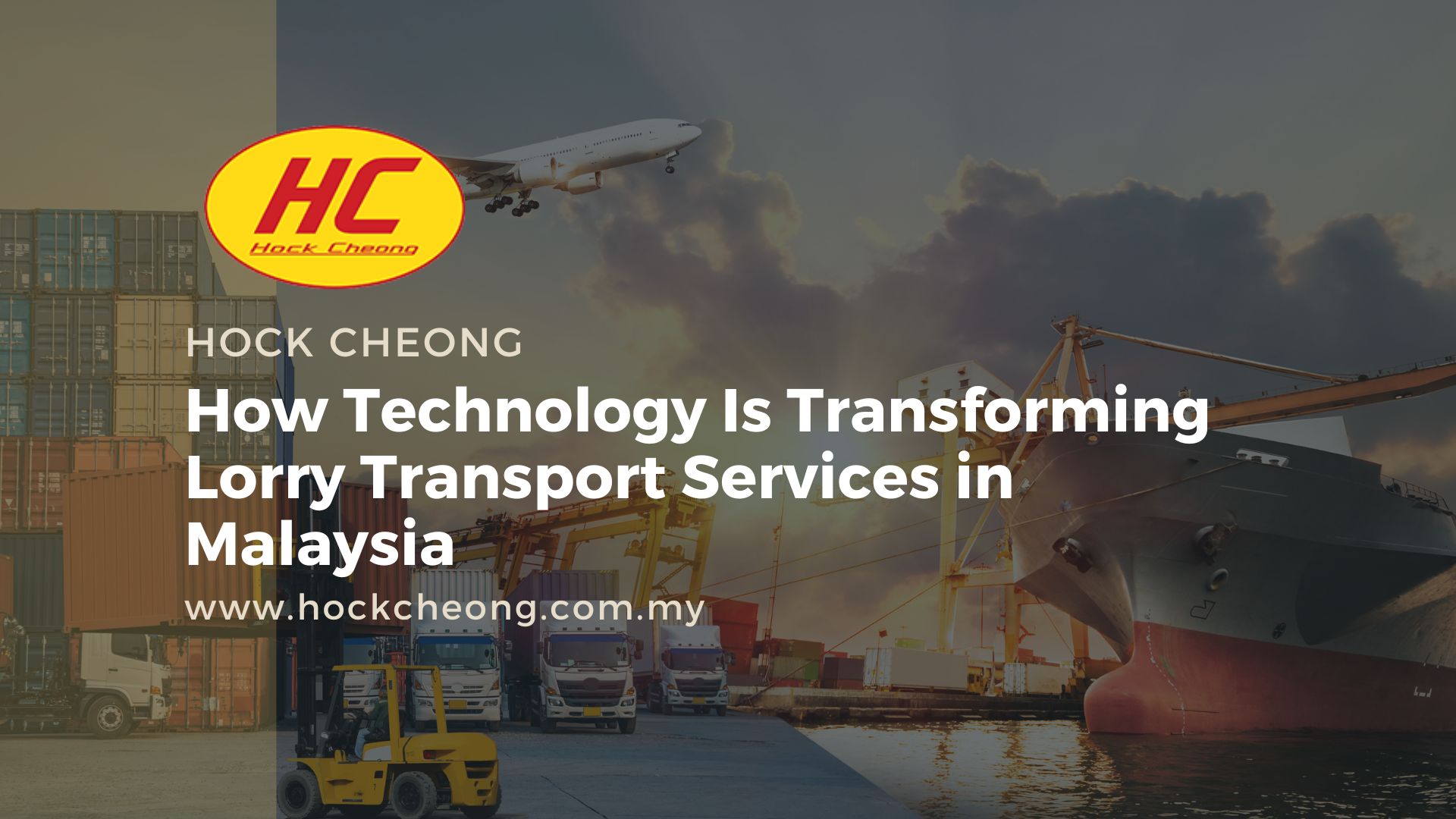The logistics and transport industry in Malaysia is undergoing a significant transformation—and at the heart of this change is technology. For decades, lorry transport services formed the backbone of the country’s supply chain, delivering goods across cities, rural areas, and industrial zones. Today, technological innovation is modernising how these services operate, making them more efficient, cost-effective, transparent, and customer-friendly.
In this blog, we explore how technology is revolutionising lorry transport services in Malaysia and what that means for businesses and consumers alike.
1. Digital Platforms for Lorry Booking
Traditionally, booking a lorry involved phone calls, manual paperwork, and sometimes even trips to transport offices. This not only consumed time but also left room for miscommunication and delays.
- Book lorry services in real-time
- Choose from various vehicle sizes (1-tonne, 3-tonne, 5-tonne, etc.)
- Track their deliveries live
- Compare rates instantly
For small businesses and retailers in Malaysia, this shift offers unprecedented convenience and price transparency. It also eliminates middlemen, allowing for more competitive rates.
2. GPS Tracking and Route Optimisation
One of the most impactful technological upgrades in lorry logistics is GPS tracking. Modern fleet operators equip their lorries with real-time GPS systems that offer the following benefits:
- Real-time location updates for customers and dispatchers
- Route optimisation using live traffic data
- Fuel efficiency tracking and performance monitoring
- Enhanced safety and driver accountability
For Malaysian businesses operating on tight schedules—especially in urban centres like Klang Valley or Penang—GPS technology helps avoid delays and improve delivery accuracy.
3. IoT Sensors for Fleet Management
The Internet of Things (IoT) is helping fleet owners monitor the health of their vehicles in real time. Sensors can detect:
- Engine temperature and performance
- Tyre pressure
- Fuel levels
- Brake wear
- Cargo load stability
By using IoT-enabled fleet management systems, transport companies can reduce breakdowns, schedule preventive maintenance, and extend the lifespan of their lorries. This not only cuts costs but also ensures deliveries are made without unexpected interruptions.
4. Cloud-Based Logistics Management
Cloud computing is revolutionising back-end logistics. Cloud-based Transport Management Systems (TMS) allow Malaysian lorry service providers to manage multiple aspects of their operations, including:
- Job dispatching and route planning
- Customer database management
- Invoicing and payment tracking
- Performance analytics
This shift to cloud systems reduces reliance on manual paperwork and spreadsheets, boosts operational efficiency, and enables remote access, which is especially beneficial during times of disruption like the COVID-19 pandemic.
With digital payment systems, customers get instant receipts, businesses speed up cash flow, and all transactions are automatically logged for accounting.
5. AI and Data Analytics
Artificial Intelligence (AI) is slowly being integrated into the Malaysian transport scene. AI tools can help forecast demand, suggest optimal delivery times, and even predict potential disruptions like traffic congestion or weather delays.
Combined with data analytics, fleet operators can uncover trends, such as:
- Peak delivery hours
- High-demand routes
- Customer satisfaction levels
- Delivery success rates
Armed with this insight, companies can fine-tune their services and make better business decisions.
6. Eco-Friendly Innovations
As environmental concerns grow, technology is also pushing for more sustainable logistics solutions in Malaysia. Some of the ongoing developments include:
- Hybrid and electric lorries for shorter routes
- Route optimisation to reduce fuel consumption
- Carbon tracking tools to calculate and offset emissions
With initiatives by the Malaysian government and private sector to promote green logistics, tech-enabled lorry services are becoming more eco-conscious.
7. Improved Customer Experience
All these technologies ultimately lead to a better end-user experience. Customers now enjoy:
- Instant bookings via apps or websites
- Transparent pricing
- Live tracking of their goods
- Better communication through automated updates
- Hassle-free payment and receipts
For businesses that rely on logistics, this results in stronger customer satisfaction and loyalty.
9. Automation in Warehousing and Loading
Another area where technology plays a crucial role is in the integration between warehousing systems and lorry transport. Automation tools—like robotic picking systems and automated loading bays—can speed up the process of preparing and loading goods onto lorries.
In major logistics hubs like Port Klang or industrial areas in Selangor and Johor, we’re seeing:
- Automated conveyor systems that match lorry arrival times
- RFID tags for instant cargo identification and tracking
- Integration between Warehouse Management Systems (WMS) and TMS (Transport Management Systems)
This tech reduces waiting time for drivers and increases overall productivity in the supply chain.
Conclusion: The Road Ahead
Lorry transport services in Malaysia are no longer just about moving goods from Point A to Point B—they’re about doing it smarter, faster, and more efficiently. Technology is reshaping every aspect of the logistics chain, and businesses that embrace these advancements will be better positioned to succeed in an increasingly competitive market.
The logistics and transport industry in Malaysia is undergoing a significant transformation—and at the heart of this change is technology. For decades, lorry transport services formed the backbone of the country’s supply chain, delivering goods across cities, rural areas, and industrial zones. Today, technological innovation is modernising how these services operate, making them more efficient, cost-effective, transparent, and customer-friendly.
As digital transformation continues, we can expect even more exciting developments: drone-assisted delivery support, blockchain for secure logistics documentation, and AI-driven automated dispatching.
For now, one thing is clear—technology isn’t just supporting the future of lorry transport in Malaysia, it is driving it.
